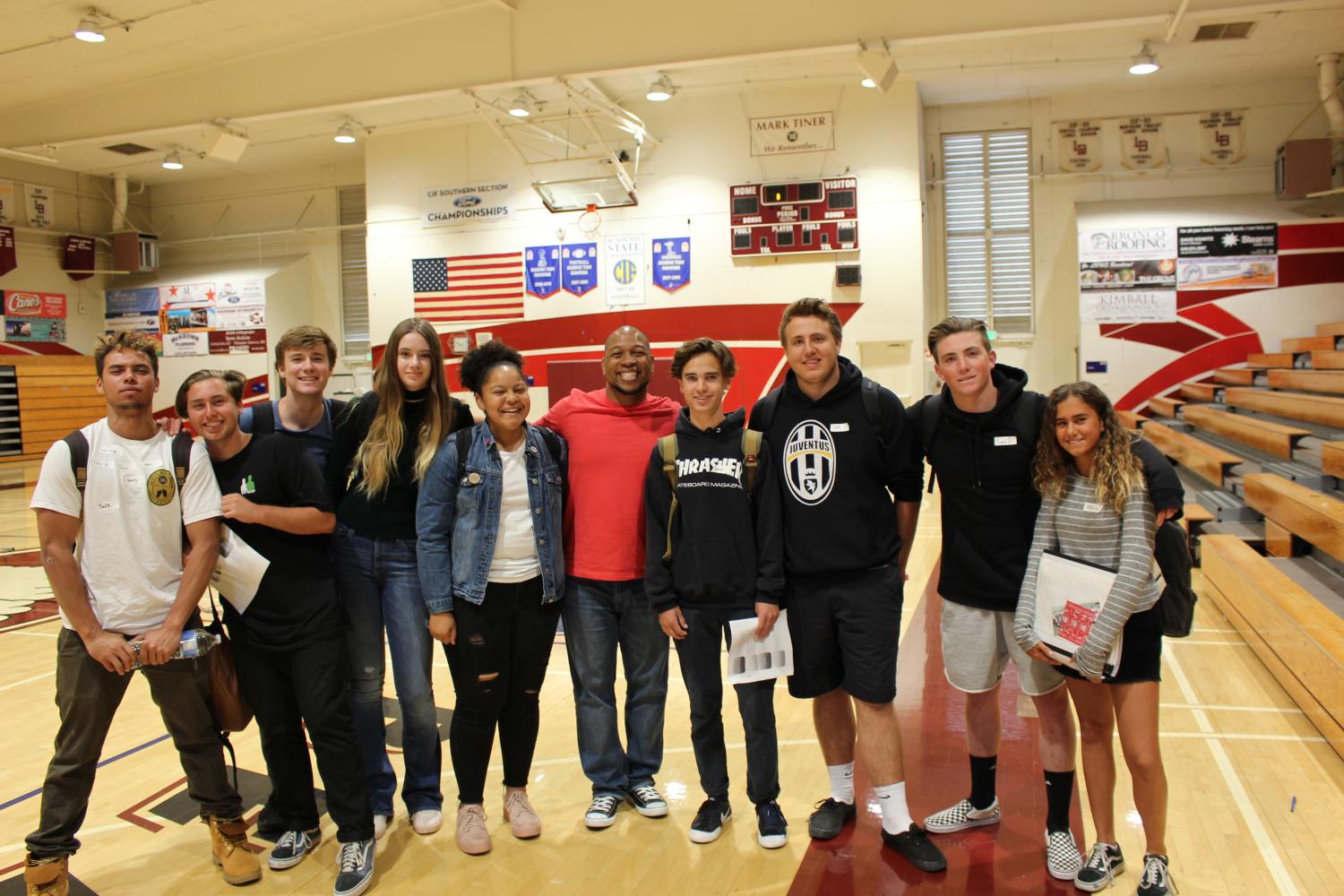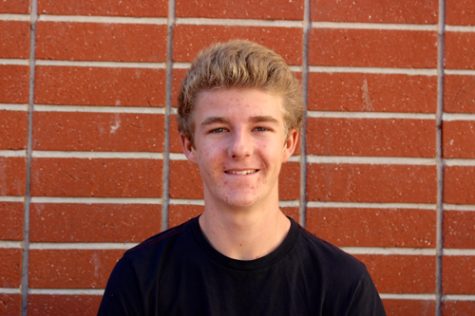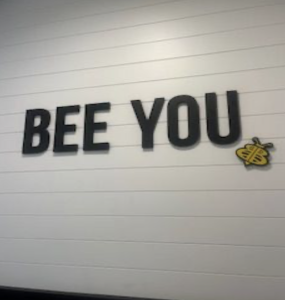Keith Hawkins returns to empower student-athletes
(Left to Right) Henry Syvertsen, Ethan Kavandi, Willie Shea, Kendall Fraser, Avalon Brice, Keith Hawkins, Garret Robben, Gustav Morck, Sean Decker, and Jessica Berk unite enthusiastically after the leadership assembly. This marked the second visit of Keith Hawkins to our campus this school year.
May 9, 2017
On Thursday, April 13, Keith Hawkins returned to Laguna Beach High School in order to speak with all ninth through eleventh grade athletes about what it means to be a leader and to discuss our newly implemented Athletic Leadership Team.
“The reason why I love sports is because when you have something positive to do, you have something to hope for,” said Hawkins. “When you have hope, you have something to love.”
After speaking for around 90 minutes, Hawkins instructed the student-athletes to partner up. The Breakers were then instructed to talk for two minutes each about something other than school or sports. The goal of this exercise was to teach athletes how to interact with people without an athletic past. After that, the students were instructed to find a new partner in someone whom they did not know.
“I thought the things Mr. Hawkins was having us do in the gym taught some valuable lessons,” said sophomore George Knapp. “After the exercise in which we weren’t allowed to talk about sports or school, I realized how much I talk about those things in my day to day life. It opened my eyes to the fact that I should try to diversify what I think and talk about,” said Knapp.
Athletic Director Lance Neal was responsible for inviting Keith Hawkins back to LBHS. Neal is also the driving force behind LBHS’ new Athletic Leadership Team: a program dedicated to enhancing leadership within the sports teams as well as around the LBHS campus. Currently, the program includes freshmen through juniors who participate in sports on campus.
“Keith had a lot of the same thoughts and ideas we did on how student athletes should behave,” said Neal. “We brought him back essentially to reinforce our message, but he was delivering his own message—it’s just similar to ours.”
Hawkins communicated how a leader is not someone who puts down teammates or plays only for glory. A leader is someone who picks up someone who is down and leads by example without barking orders. Hawkins pointed out to the Breakers the importance of being a leader not only on the field, but also around school and throughout life.
Although most sports teams were invited to the presentation, cheer and dance were seemingly overlooked even though both are a part of the athletic leadership program.
“I believe that both cheer and dance are vital parts to our school’s leadership, and for both to not be invited is a little inconsiderate,” said junior Zoe Bowman.
Hawkins spent the majority of the presentation relaying stories of different athletes he encountered while speaking across the country. Specifically, Hawkins spoke about two high school football players from different towns who committed to Stanford. One of the players was arrogant and entitled, feeling as if he was the king of his small midwestern hometown. He often caused trouble in and out of school, but suffered no consequences due to his athletic ability. His attitude represents all that is wrong with athletics today: idolizing athletes based on their performance, not their character. The other Stanford recruit was humble and selfless; coming from a poor family, he worked hard in football and school to get himself into Stanford and earn a degree in order to help his family. He attributed all his athletic and academic success to his teachers and peers at the school. This young man’s attitude embodies what all student athletes should strive to be.
“The stories about the two high school football players really resonated with me because I’ve played with super talented kids before that have terrible attitudes and even made our team worse because of their attitude,” said sophomore Rusty Hunter.
Hawkins emphasized, through various anecdotes about student athletes, how one’s character can affect their choices and their success in life.
“As your expectation goes up, your gratification goes down,” said Hawkins.









